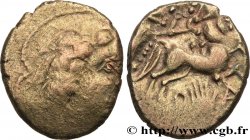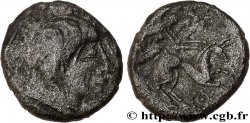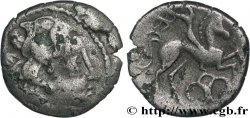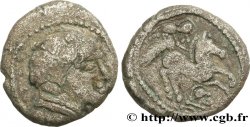bga_187412 - PICTONES (Area of Poitiers) Drachme au cavalier ailé - trésor d’Ouzilly
Not available.
Item sold on our e-shop (2010)
Price : 12.62 €
Item sold on our e-shop (2010)
Price : 12.62 €
Type : Drachme au cavalier ailé - trésor d’Ouzilly
Date: c. 120-80 AC.
Mint name / Town : Poitiers (86)
Metal : silver
Diameter : 16 mm
Orientation dies : 11 h.
Weight : 2,77 g.
Coments on the condition:
Flan court et ovale, avec un important écrasement derrière la tête au droit et derrière le cheval au revers. Patine grise et granuleuse
Predigree :
Cette drachme est la n° 380 du trésor d’Ouzilly
Obverse
Obverse legend : ANÉPIGRAPHE.
Obverse description : Tête à droite, les cheveux épars avec de grosses mèches.
Reverse
Reverse legend : ANÉPIGRAPHE.
Reverse description : Cavalier ailé galopant à droite ; sous le cheval, un fleuron orné d'un globule.
Commentary
Au droit la frappe est défectueuse et il semble qu’on peut distinguer la queue et les jambes arrières d’un cheval qui aurait été surfrappé par un coin de droit (?).







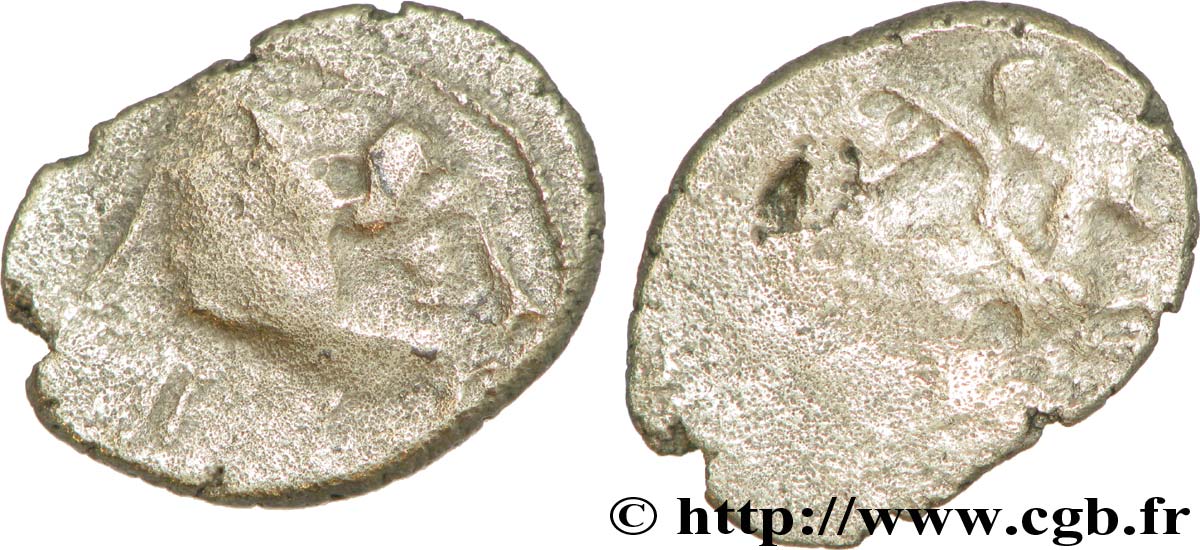
 Report a mistake
Report a mistake Print the page
Print the page Share my selection
Share my selection Ask a question
Ask a question Consign / sell
Consign / sell
 Full data
Full data